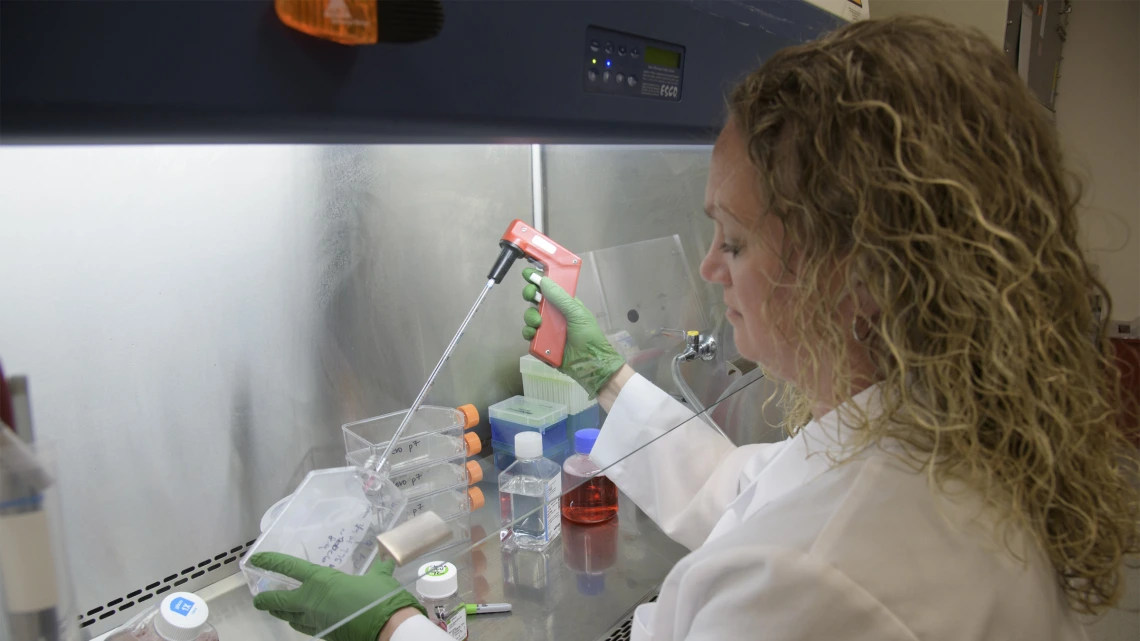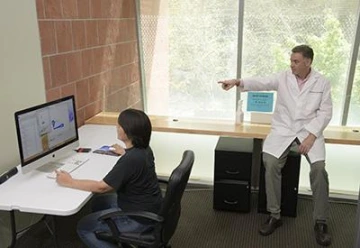UArizona Health Sciences Developing Antibody Test That Could Help Fight COVID-19

Jennifer Uhrlaub, MSc, assistant research scientist, prepares to culture the virus that causes COVID-19 so it can be pitted against antibodies to learn how it can be defeated.
The virus that causes COVID-19 is new and mysterious, presenting more questions than answers. But University of Arizona Health Sciences immunobiologists are laying the groundwork to answer some of those questions.
Janko Nikolich-Žugich, MD, PhD, teaches immunobiology in the College of Medicine – Tucson, and is chair of the Department of Immunobiology and co-director of the Arizona Center on Aging. Deepta Bhattacharya, PhD, is an associate professor in the Department of Immunobiology. They lead a team devoted to developing a COVID-19 antibody test, which is different from the test that detects if someone is infected with the virus.
Phases of immunity

Makiko Watanabe, DVM, PhD (left), and Janko Nikolich-Žugich, MD, PhD (right), review the results of a preliminary assay that sheds light on the immune response to the virus that causes COVID-19.
Using blood from a local patient who recovered from COVID-19, Health Sciences researchers are developing a COVID-19 antibody test, which will detect evidence of past infection — and immunity to reinfection.
During the initial phase of infection, “first responders” from the innate immune system flood the scene. At this point, by detecting pieces of the virus, the COVID-19 test can identify an active infection.
“The innate immune system goes all the way back to worms and fruit flies, and does its job early on,” Dr. Nikolich-Žugich explained. “It is supposed to shift up to the adaptive immune system, which is made of B cells making antibodies and T cells killing the virus.”
During this later phase of infection, the adaptive immune system deploys antibodies, custom-made proteins that bind to the virus like a key into a lock, marking it for death and persisting in the bloodstream to protect against future infection. A test for these antibodies can identify late phases of the current infection, as well as a past infection.
“Having a test that’s telling you whether you’ve had the disease already, and therefore you’re immune, would be very precious,” Dr. Nikolich-Žugich said.

